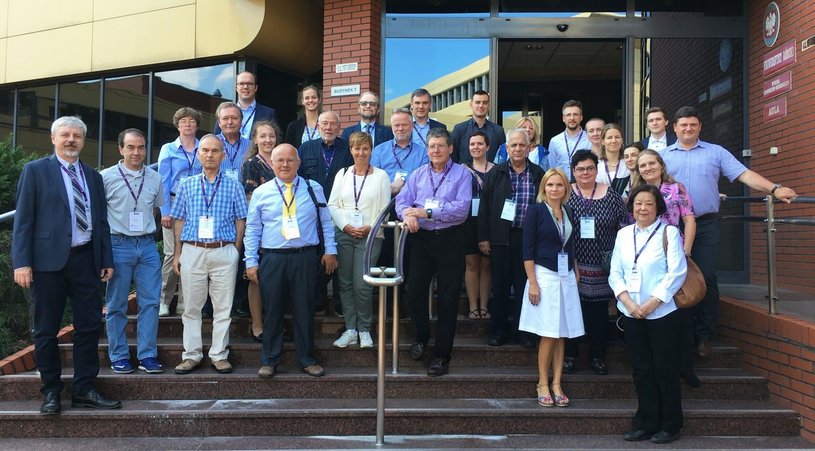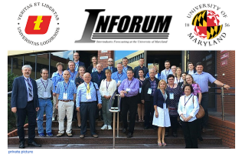
INFORUM World Conference 2018
The 26th INFORUM World Conference was held in Łódź, Poland, from August 27 through August 31, 2018. It was hosted by Prof. Michal Przybyliński and his team, the Faculty of Economics and Sociology of the University of Łódź.

Researchers and economists of the INFORUM group from Chile, China, Denmark, Germany, Italy, Poland, Russia, South Africa, Turkey and the USA met in the “heart of Poland” to present and discuss their latest research results regarding input-output-based macroeconomic and interindustry modeling.
The topics discussed not only dealt with different modeling approaches, bt also contained country-specific information, e.g. with respect to general economic structures of the respective countries and differences in data availability and how to cope with them. Amongst others, different approaches for consumption modeling as well as modeling concepts for changes in human capital, labor migration and regional analyses were presented. Further topics were concerned with policy studies and scenario analyses on environmental issues and climate change.
In hands-on sessions, Douglas Meade, head of INFORUM USA, presented the free INFORUM model building software “Cooking with Interdyme”, which is based on both, early designs of the Interdyme software generated by the founder of the INFORUM Group, Prof. erem. Clopper Almon from the University of Maryland as well as the PortableDyme software developed on behalf of GWS by Anett Großmann, Frank Hohmann and Kirsten Wiebe.
Following good tradition, the hosts also organized a social programme including a guided walk around Łódź followed by a dinner at Manufaktura, a major tourist asset of the third biggest city of Poland. The day excursion comprised a guided tour around Łódź in an historic tram, followed by a visit of the Museum of History of the City of Łódź in the Poznanski Palace and the Museum of the Factory in Manufaktura.
The 26th conference offered an excellent opportunity to discuss applications of INFORUM models and exchange new ideas. Special thanks go to the Polish team around Prof. Michal Przybyliński for a perfect organization and to all participants who contributed to valuable insights and fruitful discussions.
Next year, the 27th INFORUM World Conference will be held in Sochi, Russia. Prof. Alexander Shirov and his team from the Institute of Economic Forecasting at the Russian Academy of Sciences, Moscow are looking forward to welcoming INFORUM members as well as macroeconomic researchers who are not yet part of the group in Sochi at the Black Sea at the end of August/ beginning of September 2019.
Presentations held at the conference (in alphabetical order of the authors)


